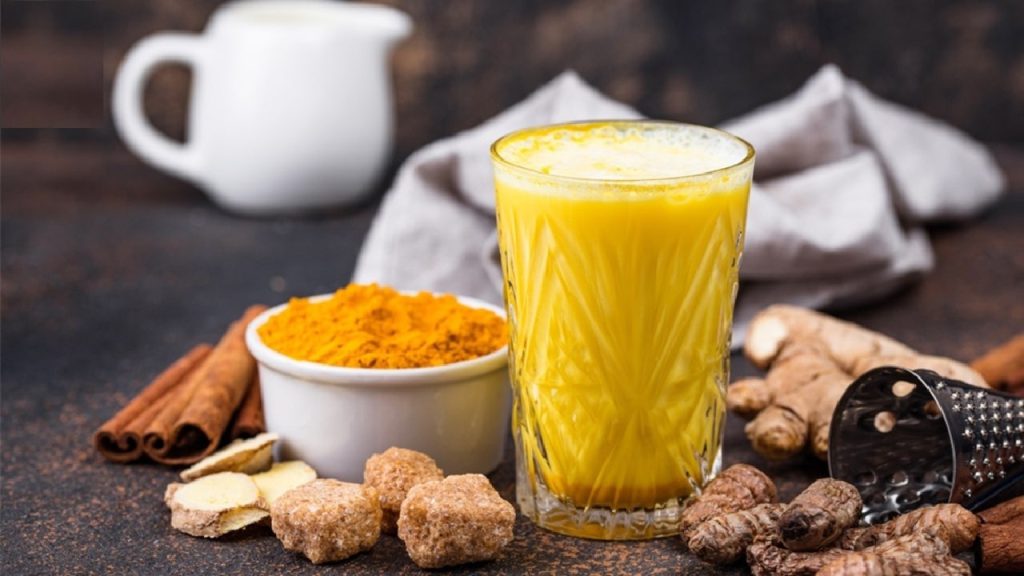How milk and Turmeric; can help your Cold?
In the following, we’ll delve into some of the remarkable benefits of turmeric and milk, supported by scientific evidence.
Rich in antioxidants, The main component is antioxidant
Turmeric is a key ingredient in golden milk, a popular culinary addition in Asian cuisine.
Curcumin, the active compound found in turmeric, has been used for centuries in traditional Indian medicine due to its potent antioxidant properties.
Antioxidants are compounds that combat cellular damage and protect the human body against oxidative stress.
They are essential for the functioning of our body’s cells, and studies suggest that diets rich in antioxidants may help reduce the risk of infections and diseases.
Most turmeric and milk recipes also include cinnamon and ginger, both of which have their own antioxidant properties.
It possesses antimicrobial, antiviral, and antifungal properties.
In India, turmeric milk is often used as a home remedy for colds. In fact, this beverage has gained attention for its immune-boosting properties.
Laboratory studies show that curcumin has antibacterial, antiviral, and antifungal properties, which may contribute to preventing and fighting infections.
Although the results of such studies are promising, there is currently no definitive evidence that turmeric milk reduces infections in humans.
The compounds found in ginger may inhibit the growth of certain bacteria. Ginger extract may also combat the human respiratory syncytial virus (HRSV), a common cause of respiratory infections.
Furthermore, laboratory studies have shown that cinnamaldehyde, the active compound in cinnamon, may prevent the growth of bacteria. Additionally, it may aid in the treatment of respiratory infections caused by fungi.
The ingredients in turmeric milk have strong anti-inflammatory and antioxidant properties, which may enhance the human immune system.
It helps reduce inflammation and joint pain.
The constituents of turmeric milk possess potent anti-inflammatory properties.
Chronic inflammation is believed to play a significant role in chronic diseases such as cancer, metabolic syndrome, Alzheimer’s disease, and heart disease. Therefore, diets rich in anti-inflammatory compounds may reduce the risk of these conditions.
Research indicates that ginger, cinnamon, and curcumin – the active compound in turmeric – have powerful anti-inflammatory properties.
Studies have even shown that the anti-inflammatory effects of curcumin can be compared to some medications, without the side effects.
These anti-inflammatory effects may help alleviate joint pain caused by osteoarthritis and rheumatoid arthritis, for example.
For instance, a study involving 45 individuals with rheumatoid arthritis found that taking 500 milligrams of curcumin per day was more effective in reducing joint pain than a common arthritis medication or a combination of curcumin and medication.
Another study involving 247 individuals with osteoarthritis showed that the group receiving ginger extract experienced less pain and required fewer pain-relief medications compared to the group taking a placebo.
In conclusion, turmeric milk, with its rich blend of turmeric, ginger, and cinnamon, offers a range of potential health benefits, including immune support, antimicrobial properties, and anti-inflammatory effects. While more research is needed to fully understand its impact on human health, the evidence so far is quite promising. So, why not incorporate this soothing and flavorful beverage into your daily routine and experience its potential benefits firsthand?



